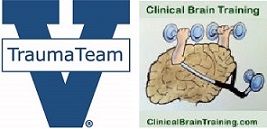Atul Gawande’s article asking why Cheesecake factory can provide outstanding products in diverse environments, at reasonable prices, and why we cant do this in hospitals has been sent to me by 5 people. The theme is “why cant we do this?”. I have several comments:
First, I respect Gawande tremendously, but there is a big knowledge gap between doctors who practice medicine, and doctors who attempt to control the way other doctors practice medicine. Gawande is in the former group, and I am in the latter. It is easy to identify the problems in medicine, but much harder to devise and implement solutions.
Second, the line cooks, waitresses, managers, and other employees at Cheesecake Factory accept their positions knowing they are joining an enterprise where their individual initiative is neither wanted, nor needed. I am fairly certain Cheesecake Factory isn’t looking to hire Thomas Keller as a chef. They want people that will easily fit into a system. They are rapidly indoctrinated to a system of processes that have already been figured out. Since, the processes are known and vetted, they are relatively easy to implement in individual restaurants, and in restaurants in different states, or countries. In addition, they have concrete data to represent their success and failure. Sales drops are easy to identify, as well as products that don’t sell, entrees with excessive production costs, and ingredients with high acquisition costs. This data can be operationalized immediately, without argument. That allows the restaurant to be nimble in response to market forces. In medicine, we have few if any vetted and conclusively proven care processes. Sometimes I wonder if there is anything we do that we can definitely say is the “best” way to do it. You only need to look at appendectomy (laparoscopic versus open), CPR (ABC now is CAB), angiography for vascular disease, CABG versus angiography, etc., etc., etc. Sometimes the lack of definitive data for so many things leads to the creation of care guidelines that turn out to be flat wrong, when new studies emerge. At Cheesecake Factory, if they sell a lot of something with a high margin, its awesome, if they dont, they stop making it. We dont have that option.
And finally, Doctors. We are all people at the top of our classes most of our lives, and then went into a profession where we were taught the ultimate responsibility for any adverse outcome was our fault, not the fault of the system. We question and object to data, refuse to follow guidelines because there “might” be a patient that would come along that would be hurt by the guideline, and don’t accept that there are some parts of medical care that others (NPs and PAs) do just as well as we do, if not better. Nevermind, the cottage industry nature of each medical practice where you are responsible for generating income to support you and your family. The more work you do, the higher your income (in general). A manager or chef at Cheesecake Factory does not possess these attitudes, or if they do, I am fairly certain they do not have the power to run their line or restaurant however they see fit. Doctors can, in general, run their clinical practice with a great deal of latitude.
Pointing out how far we have to go in medicine is no longer helpful. Anyone who doesnt realize that change is necessary has been asleep for the past 10 years. We need solutions that take into account the nature of medical care in it’s true state. Success in changing and controlling medical practice occurs when all involved realize they need to find a path that decreases variability, costs, and adverse outcomes. First you need to identify care processes that are optimal (given the current state of knowledge), then you need to have information and control systems that make it easy for practitioners to comply with the recommended care processes, you need to provide feedback as close to real time as possible, and then you need to constantly look at your outcomes to make sure you are not hurting anyone. It’s a tall order, but it requires everyone to be on the same page.



 Subscribe in iTunes
Subscribe in iTunes